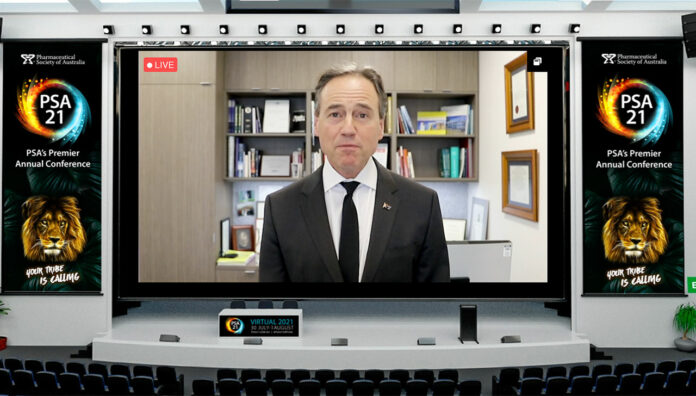Two PSA members will join the Deputy Chief Medical Officer Professor Michael Kidd on the National Medicines Policy Review Committee, due to start work next month.
As PSA21 Virtual kicked off today, PSA National President Chris Freeman announced the make-up of the committee on behalf of federal Health Minister Greg Hunt, who opened the conference this morning.
In his address, Minister Hunt thanked Australia’s pharmacy workforce and acknowledged the work of PSA in last year’s 7CPA agreement, the $11.7 million Quality and Safe Use of Medicines Research Program and the $17.7 billion response to the aged care royal commission final report.
What a morning at the #PSA21VIRTUAL opening plenary as @GregHuntMP endorses the ‘vision for pharmacy as a fundamental role in Australia’ #pharmacyrecognition pic.twitter.com/4dg3pxCtXN
— Lily Pham (@lilypham_) July 29, 2021
With pharmacists in 250 community pharmacies around the country already dispensing the AstraZeneca vaccine, Minister Hunt ‘particularly’ wanted to acknowledge the work of all pharmacists to date. He said involved pharmacies would increase to 470 next month, with more than 3,900 pharmacies in total eligible to participate.
Joining the National Medicines Policy Review Committee and bringing expertise in medicines policy, clinical practice, consumer engagement and the pharmaceutical industry, are PSA Life Fellow Professor Lloyd Sansom, PSA NSW Branch Committee Vice President Dr Sarah Dineen-Griffin, Ms Janette Donovan and pharmaceutical industry advisor Mr David Herd.
Expected to take about 6 months to conduct its review, the committee will make recommendations on the outdated and inconsistent National Medicines Policy, so consumers and healthcare professionals can understand and access the criteria and processes for medicine approval, review and removal from the Australian market and the role of the Therapeutic Goods Administration in ensuring high-quality, safe and effective use of medicines.
‘PSA looks forward to working closely with the committee to ensure medicines safety and quality use of medicines are strengthened as a central pillar of the National Medicines Policy,’ A/Prof Freeman said.
Expanded health and regulatory change
The PSA has fought hard during the coronavirus pandemic to bring in changes to state and territory regulations, A/Prof Freeman outlined. And PSA also expects to ‘look for wins’ again, ‘particularly in ending mRNA vaccine discrimination and fair remuneration’ in helping to accelerate Australia’s exit from the pandemic.
No matter the pharmacy practice environment, he said PSA would advocate for fairer recognition for pharmacists.
‘Our colleagues in the United Kingdom,’ he said, earn the equivalent of A$30 per vaccination – not dissimilar to the funding received by Australian GPs.’
‘It is nearly double the current private market or payment for COVID-19 vaccination by pharmacists in Australia.’
Thanks @topherfreeman for raising the issue of appropriate and equivalent remuneration for vaccination delivery #wearenotthepoorcousins #pharmacists #healthprofessionals #PSA21Virtual pic.twitter.com/L7bWkkdEHn
— Anna Barwick MPS (@IndispensablePh) July 29, 2021
A/Prof Freeman extended thanks to all of Australia’s pharmacists – from every hospital, community, defence, educational and professional body – who had each played a significant role in keeping Australians safe during the pandemic.
He commended the front-line pharmacists who worked long and hard ‘under immense pressure’, despite the fear of becoming sick. For some, this fear was realised, with at least 63 pharmacists contracting COVID-19 during last year’s second wave in Victoria and many others impacted – most recently in hotspots in the greater Sydney area.
The PSA remained committed to pushing toward ‘full scope of practice’ in all settings, as outlined in the profession’s blueprint Pharmacists in 2023.
He also thanked speakers Dr Suzanne Nielsen MPS, for facilitating live questions with keynote speaker Dan Schneider, live from the United States, and Dr Katie Allen, who spoke to pharmacists of the important continuing partnership – particularly in aged care reform – between the pharmacy profession and the federal Government.
Communities of special interest
A/Prof Freeman also announced the launch of the Early Career Pharmacists’ Communities of Special Interest (CSI) Group. This is the first of a number of CSIs PSA will release in coming months.The groups are facilitated online forums for developing focused strategy, policy and practice training and tools to help propel the profession into the future.
Established as an exclusive PSA member benefit, CSIs will allow members to collaborate, network and voice opinions that may help shape the profession.
Fantastic to hear all the progress of PSA and #PSAECPs
Shoutout to fellow ECP @sarahdgriffin – congrats on your position on the National Medicines Policy review committee! 🎉#PSA21Virtual @FIPYPG @PSA_National pic.twitter.com/ShU1JE9NO2— Jess Hsiao (@Jess__Hsiao) July 29, 2021
In September, PSA will launch three new CSIs in the areas of Contemporary Community Pharmacy Practice, to be led by PSA’s WA Branch Committee President and new National Board member, Dr Fei Sim. Another, on Interdisciplinary Team-based Care will be led by Debbie Rigby FPS. And a third CSI on Respiratory Care will be led by the Research Leader at the Woolcock Institute and University of Sydney Professor Sinthia Bosnic-Anticevich, who will present at PSA21 on Sunday (1 August).
All pharmacies can join rollout in 2 weeks
During a session on COVID-19, Ben Sladic, Assistant Secretary in Primary Care Implementation on the National COVID Vaccine Taskforce, told attendees that as the Prime Minister Scott Morrison outlined last week, all suitable pharmacies nationwide are eligible to request participation in administering AstraZeneca vaccinations ‘in order to accelerate the rollout’ from ‘mid-August’.
‘In addition to this, community pharmacies will also be offered the opportunity to participate in an mRNA vaccine rollout programme as supply becomes available from September. All pharmacies will be permitted to order, and vaccinate with, both AstraZeneca and mRNA vaccines,’ Mr Sladic confirmed.
He encouraged pharmacists to read the vaccine rollout campaign plan that is currently being finalised by the head of the National COVID vaccine Taskforce Lieutenant General John Frewin for release in the coming weeks.
The immediate focus, Mr Sladic said, was to help everyone get a first dose of vaccine before Christmas.
Ensuring that operations manuals were set up for quick activation, having QR code signage ready, and having a clear workflow and workplace setup plan were ‘very, very important’ matters learned in hindsight that could help with future planning, A/Prof Freeman told the session ‘COVID-19: How far we’ve come, current reality and what the future may hold’.
All PSA21 Virtual sessions can be reviewed by registrants for up to 2 years after the conference concludes on Sunday. There are still more than 12 sessions to participate in at the conference tomorrow, and another 14 on Sunday, as well as Masterclasses for the next five Mondays in August.



 Ruth Nona[/caption]
Ruth Nona[/caption]
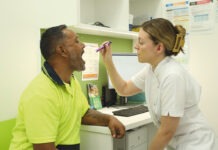
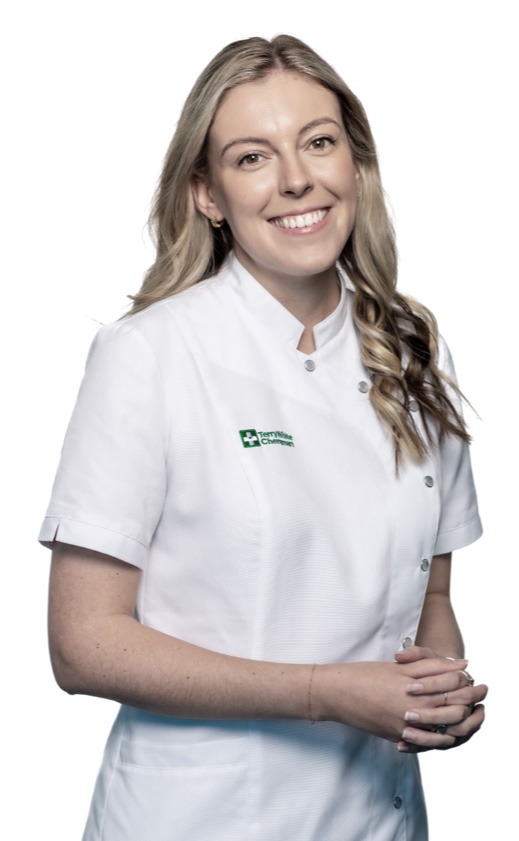 Kate Gunthorpe MPS[/caption]
Kate Gunthorpe MPS[/caption]
 Madison Low[/caption]
Madison Low[/caption]

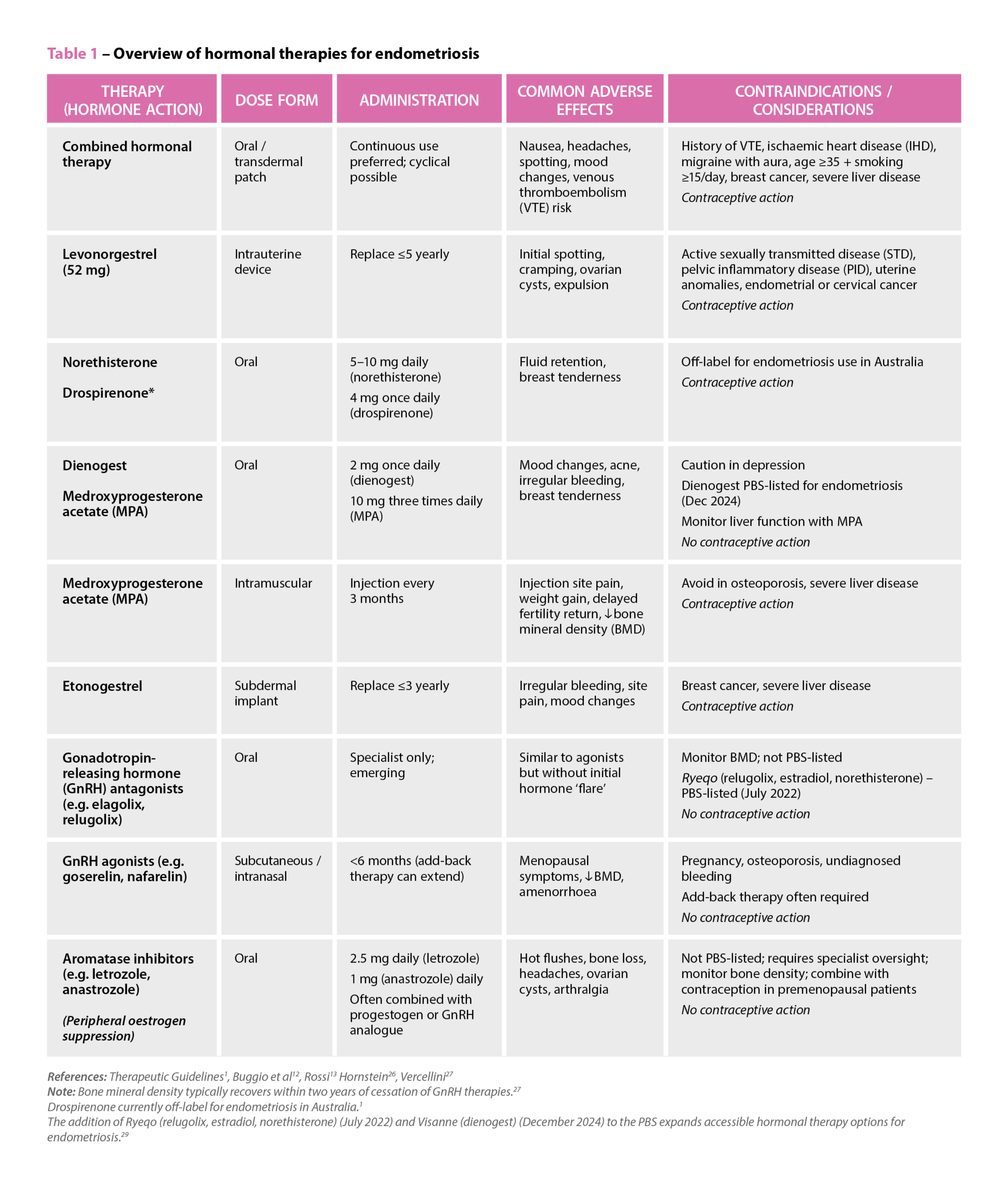 References: Therapeutic Guidelines
References: Therapeutic Guidelines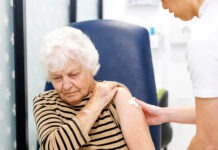

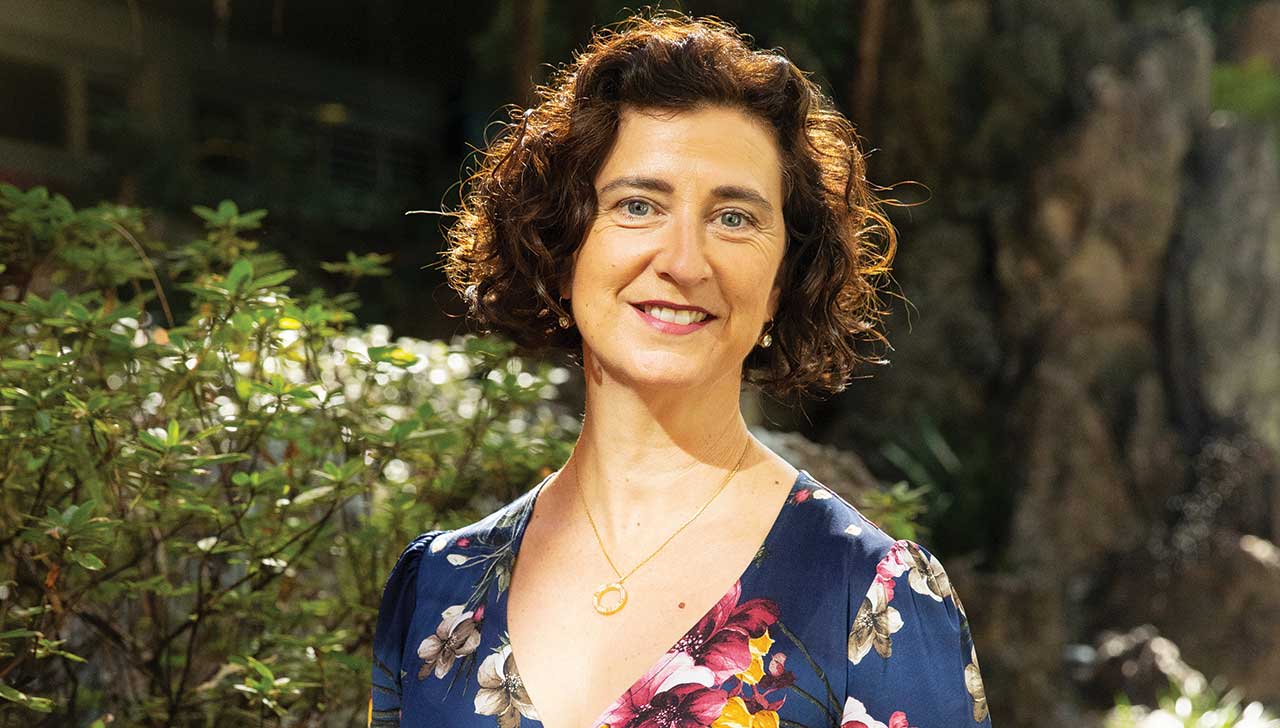 Genevieve Adamo MPS (Image: Steve Christo Photography)[/caption]
Genevieve Adamo MPS (Image: Steve Christo Photography)[/caption]
